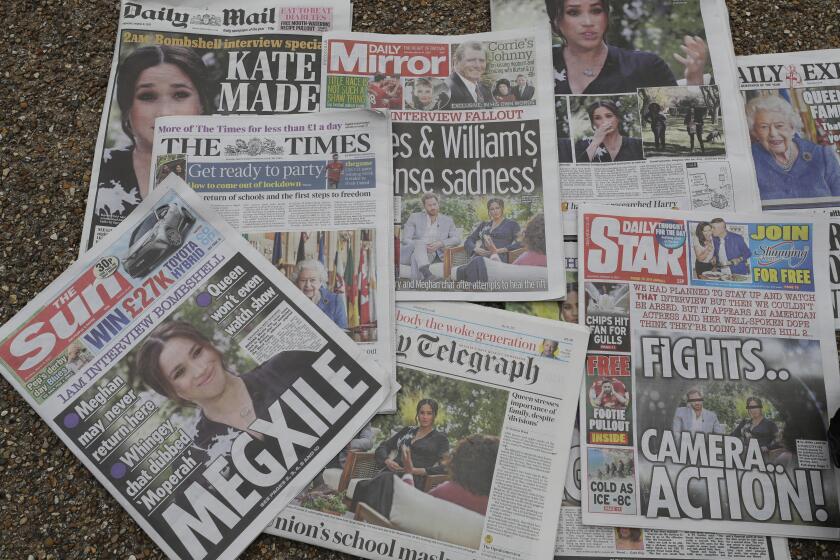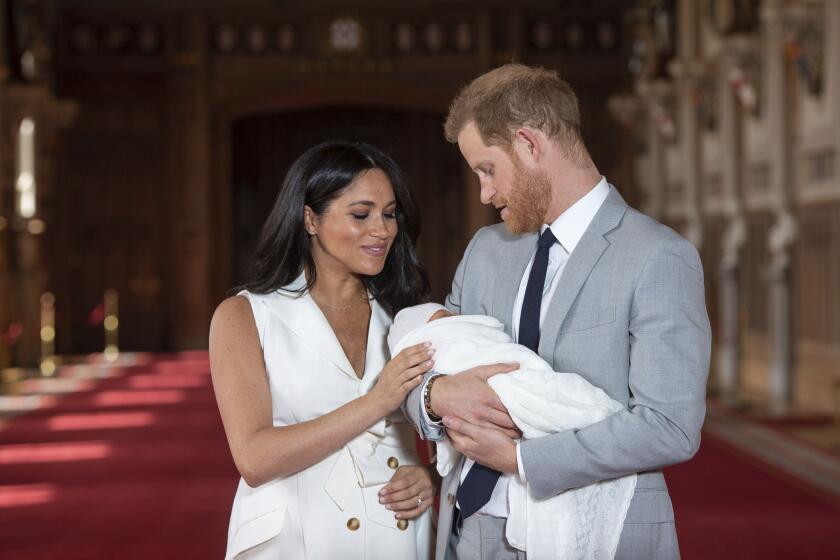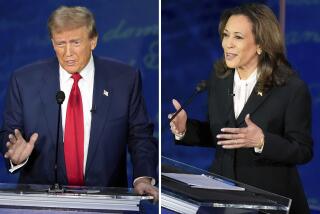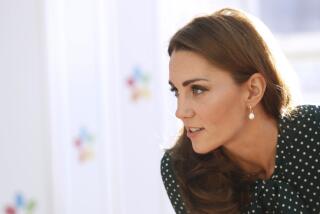Palace response to Meghan and Harry’s racism claims fails to quell controversy
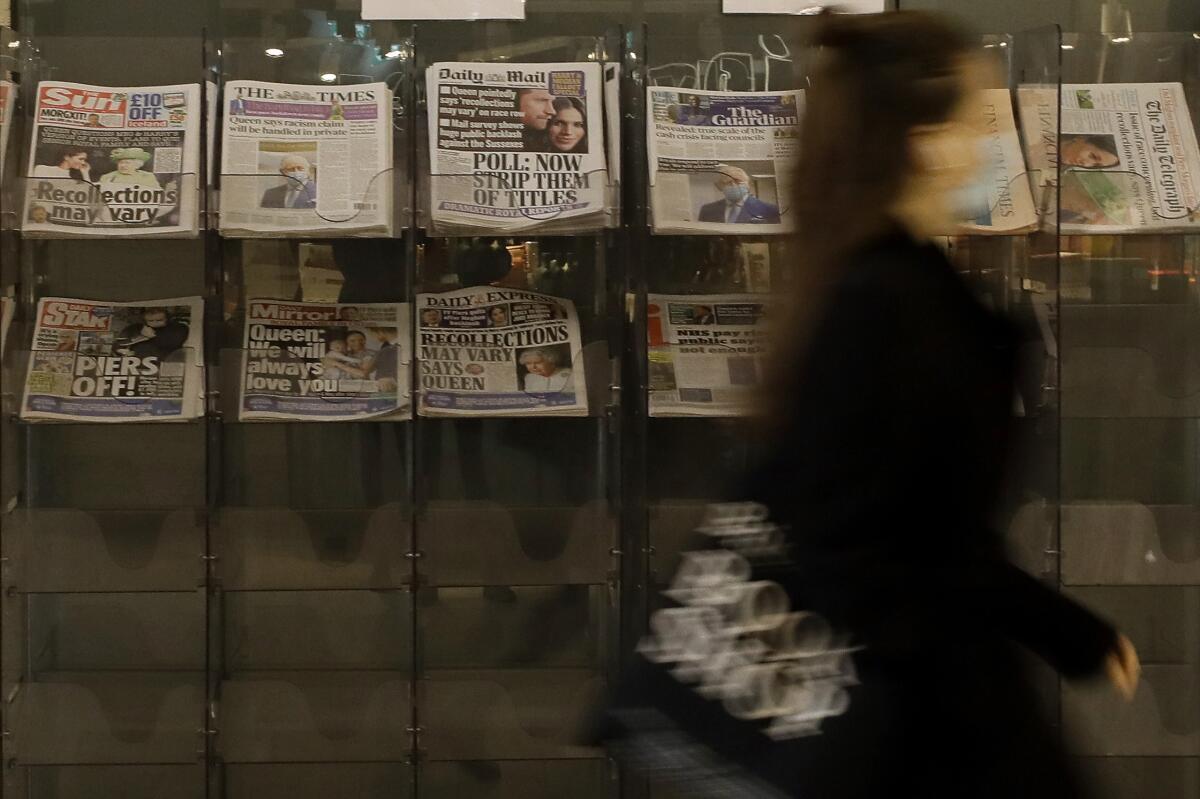
- Share via
LONDON — Buckingham Palace’s response to the Duke and Duchess of Sussex’s allegations of racism and hard-hearted treatment has failed to quiet the controversy, with some observers criticizing the royal family for failing to forcefully condemn racism and for suggesting that the couple’s version of events might not be accurate.
“Too little, too late” was the verdict of royal commentator Peter Hunt, who also criticized the palace’s 61-word statement for saying the issue would be dealt with privately as a family matter.
“This delayed, tame statement went for predictability when unpredictability — stepping out of the Windsor comfort zone — was what was needed,” Hunt wrote on the website of the influential Spectator magazine.
The statement, issued on behalf of Queen Elizabeth II, was released 36 hours after Harry and Meghan’s interview with Oprah Winfrey aired in the U.S., but less than a day after its broadcast in Britain.
“The whole family is saddened to learn the full extent of how challenging the last few years have been for Harry and Meghan,” the palace said. “The issues raised, particularly that of race, are concerning. While some recollections may vary, they are taken very seriously and will be addressed by the family privately.’’
The comments were the palace’s first words since the interview rocked the royal family — and touched off conversations around the world about racism, mental health and even the relationship between Britain and its former colonies.
Fresh salvos from Britain’s tabloids after duke and duchess recount ordeal
In the interview, Meghan, who is biracial, described feeling so isolated and miserable inside the royal family that she had suicidal thoughts, yet when she asked for mental health assistance from the palace’s human resources staff, she was told they couldn’t help because she wasn’t a paid employee. She also said Harry told her there were “concerns and conversations” about the color of their baby’s skin when she was pregnant with their son, Archie.
The interview has been seen by some 50 million people worldwide.
Anna Whitelock, director of the Center for the Study of Modern Monarchy at Royal Holloway, University of London, said the palace’s brief message had “hardened the lines” between people who believe the monarchy is an outdated bastion of inherited white privilege and those who see it as a cherished national institution.
Fallout from the interview is likely to only fuel the debate over the future of the monarchy and its role both in Britain and the other countries around the world for which the queen serves as head of state, Whitelock said. The queen remains the head of state for 15 countries, most of which were once part of the British Empire, including Australia, Canada, New Zealand and island nations in the Caribbean.
Archie Mountbatten-Windsor, Harry and Meghan’s son, is seventh in line to the British throne but is not a prince, thanks to King George V.
“That’s a debate that’s been held in check, in large part, given the length of the queen’s reign and in respect to her and the role that she’s played,” Whitelock said. “But it’s going to happen, and it’s just a question of when, not if.”
The interview especially struck a chord with many Black people in Britain, some of whom were not satisfied with the palace’s remarks. Bell Ribeiro-Addy, a Black member of Parliament from the opposition Labor Party, said Buckingham Palace should have directly condemned racism.
“The monarchy is a public institution that receives public money, and any criticism of the institution should really be met with a forceful response from the institution about what they are going to do,” Ribeiro-Addy told the BBC. “We expect [that] of any institution. Why not the monarchy, why not the palace?”
More to Read
Sign up for Essential California
The most important California stories and recommendations in your inbox every morning.
You may occasionally receive promotional content from the Los Angeles Times.
